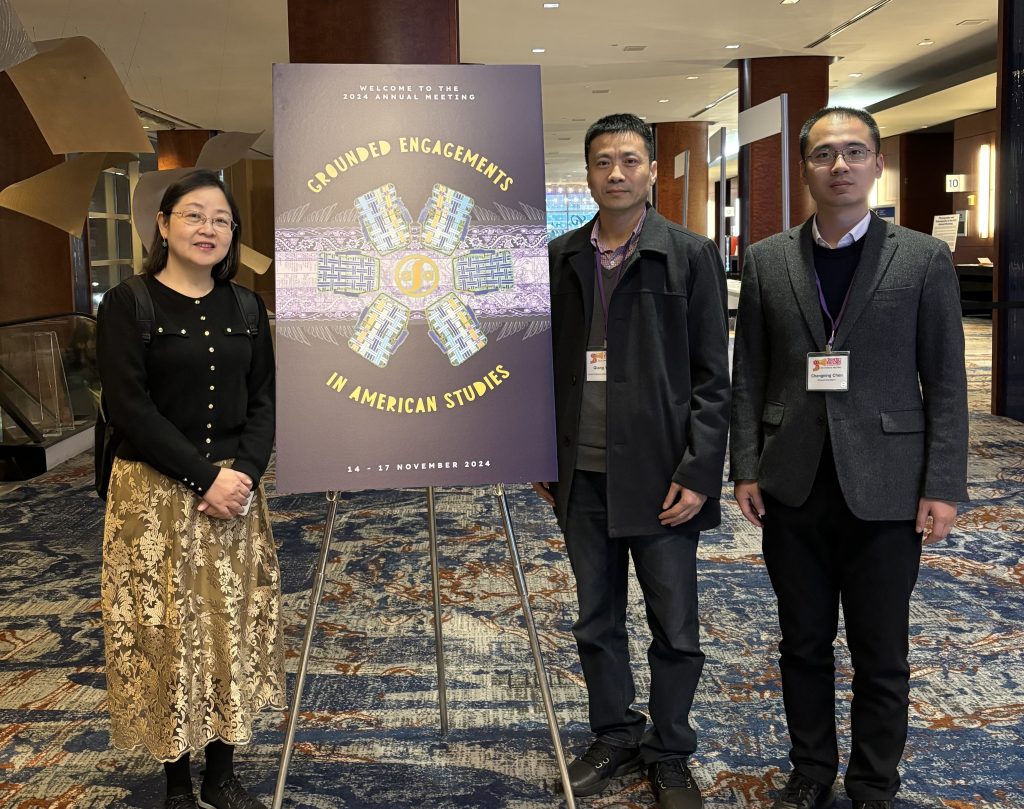—Supported by the Henry Luce Foundation
In mid-November, USCET invited three Chinese scholars who specialize in American Studies to Washington as part of our long-standing efforts to strengthen the study of the United States in China. The scholars were invited to participate in the 2024 American Studies Association Annual Meeting in Baltimore, and meet key individuals in Washington DC before the conference.
The delegation featured Dr. Chen Changning, Director of the American Studies Center at Sichuan University School of International Studies, who specializes in American legal systems and US-China relations; Dr. Tu Yichao, Associate Professor at Fudan University’s Center for American Studies, whose research focuses on religion, music, and international relations; and Dr. Yang Qiang, Associate Professor and the Vice Dean of the Department of English and International Studies at China Foreign Affairs University, who specializes in international relations, American foreign policy, and US-China relations. These scholars offered their expertise and perspectives on U.S.-China relations, foreign policy in the U.S. and China, assessments of the 2024 presidential elections, and the future of bilateral cooperation.
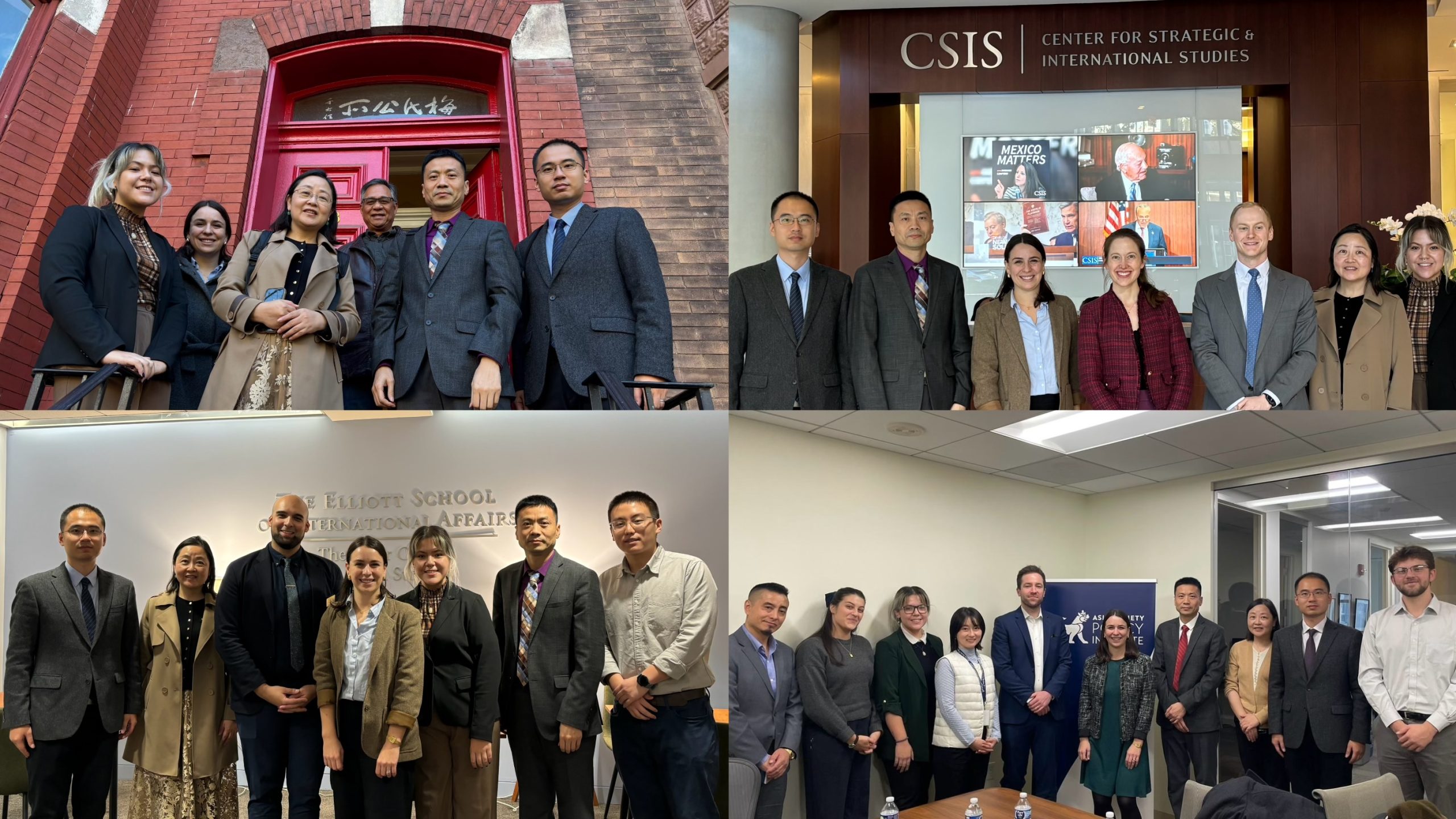
The program began with a visit to the 1882 Foundation, where Senior Director Richard Wong led an engaging discussion about Chinese American history in Washington, DC. Following an introduction to USCET’s mission by Executive Director Rosie Levine, the scholars explored how Chinese American communities have evolved over generations, from early immigration restrictions to contemporary challenges and milestones. After the meeting, Richard led the group on a walking tour of Chinatown, providing insights into the current state of this historic neighborhood.
At the Center for Strategic and International Studies (CSIS), Lily McElwee, Deputy Director and Fellow of the Freeman Chair in China Studies, and Brian Hart, Deputy Director and Fellow of the China Power Project, engaged with the delegation in a thoughtful discussion about current U.S.-China relations. The discussion traced the evolution of U.S. policy toward China across different administrations, from Obama’s strategic engagement to Trump’s more confrontational approach and Biden’s current policy framework. The scholars also explored key issues, including China’s growing military capabilities, technological ambitions toward 2025, and changing business dynamics between the two countries.
The first day concluded at George Washington University’s Sigur Center for Asian Studies, where the scholars met with a group of students and faculty members to discuss the state of American Studies in China and the importance of academic exchanges. The program began with a visit to the 1882 Foundation, where Senior Director Richard Wong led an engaging discussion about Chinese American history. Following an introduction to USCET’s mission by Executive Director Rosie Levine, the scholars explored how Chinese American communities have evolved over generations, from early immigration restrictions to contemporary challenges. After the meeting, Richard led the group on a walking tour of Chinatown, providing insights into the current state of this historic neighborhood.
At the Center for Strategic and International Studies (CSIS), Lily McElwee, Deputy Director and Fellow of the Freeman Chair in China Studies, and Brian Hart, Deputy Director and Fellow of the China Power Project, engaged with the delegation in a thoughtful discussion about current U.S.-China relations. The discussion traced the evolution of U.S. policy toward China across different administrations, from Obama’s strategic engagement to Trump’s more confrontational approach and Biden’s current policy framework. The scholars also explored key issues, including China’s growing military capabilities, security issues related to Taiwan, and changing economic relations between the two countries.
The first day concluded at George Washington University’s Sigur Center for Asian Studies, where the scholars met with a group of students and faculty members to learn more about the Sigur Center’s work, discuss means for dialogue between next-generation leaders in both countries and the importance of academic exchanges.
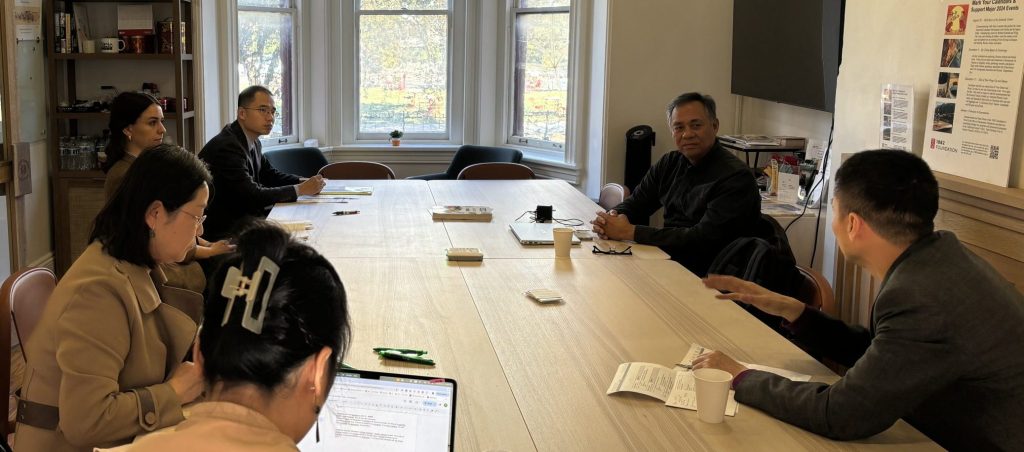
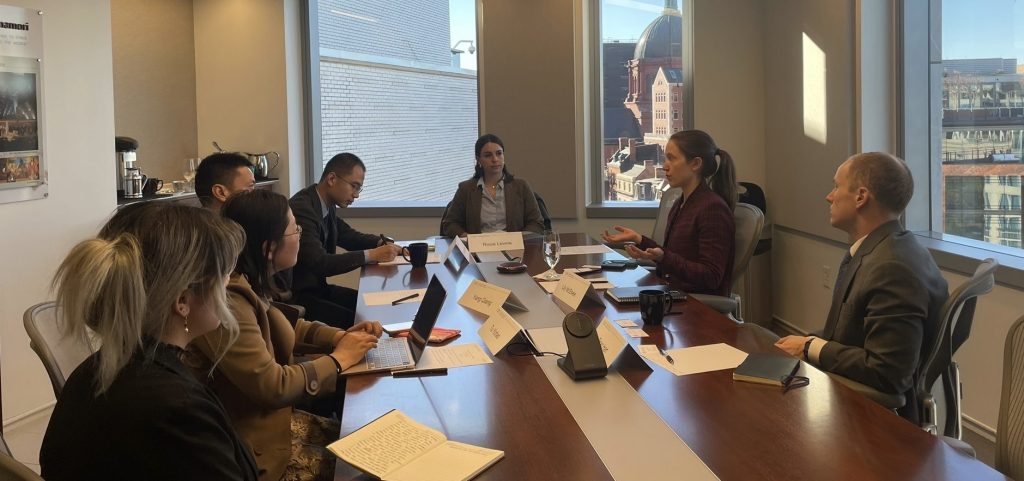
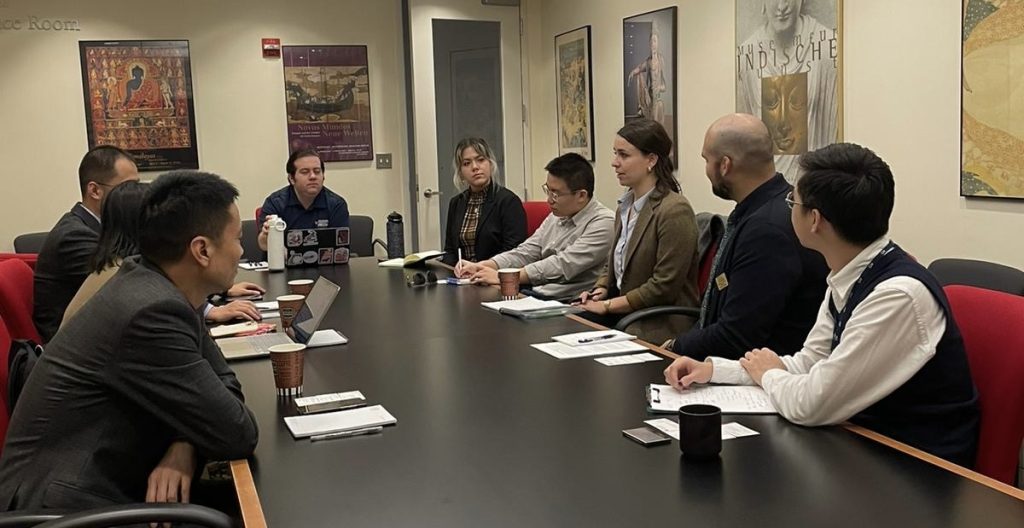
The second day opened with meetings at the Congressional Research Service (CRS), where data specialists and area analysts gave the delegation insights into how the U.S. Congress approaches China-related policy issues and tools to navigate Congress.gov and other library resources.
The delegation later met with Neil Thomas, Fellow on Chinese Politics at the Asia Society Policy Institute, who facilitated a discussion on the evolving dynamics of US-China relations. The scholars shared insights about how Chinese academics view recent US policy developments, including the challenges of technology decoupling and its impact on Chinese companies. Discussion topics included climate change cooperation, the future of bilateral relations under different political scenarios, and the state of American Studies in China.
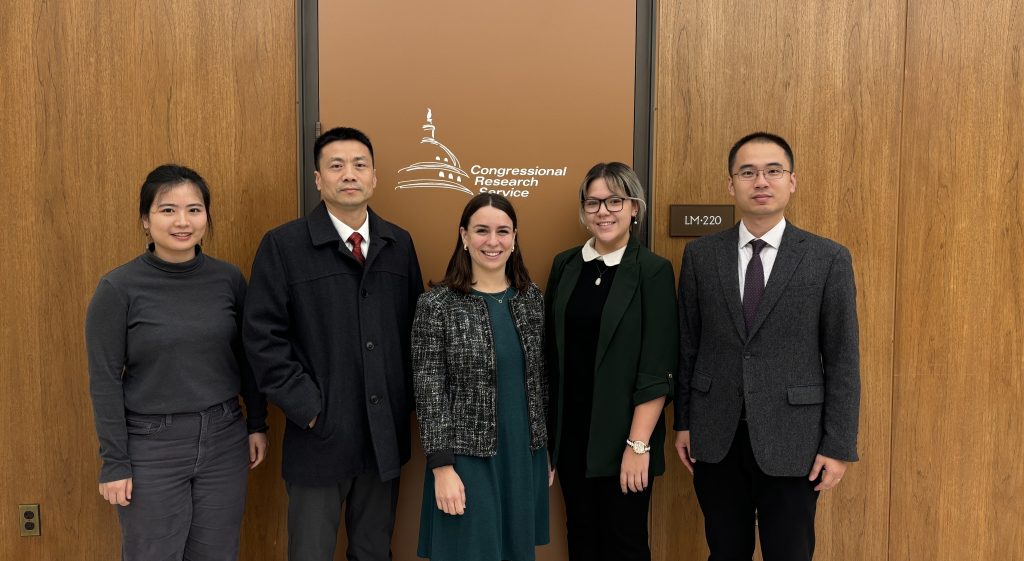
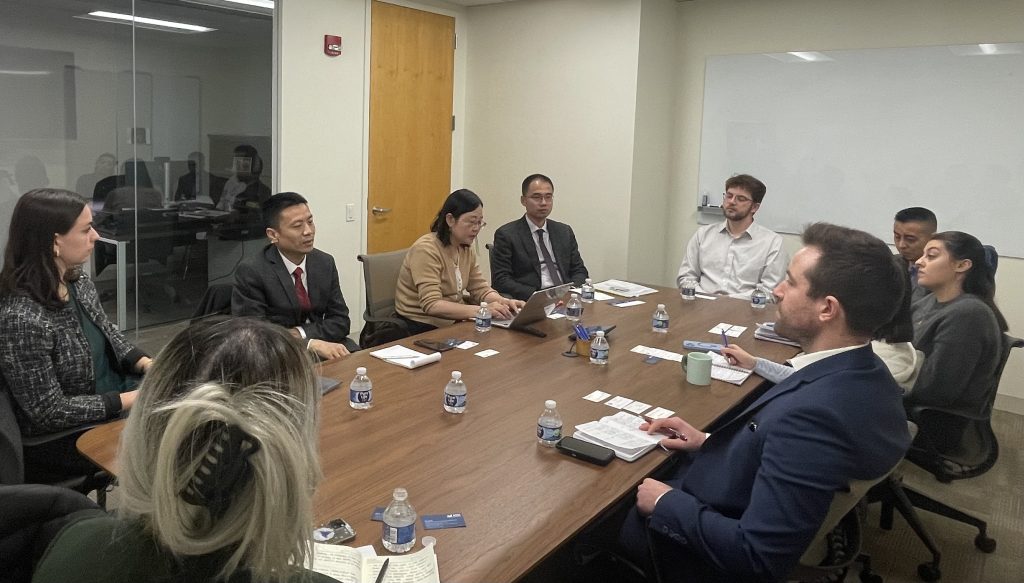
Following the DC meetings, the delegation traveled to Baltimore for the 2024 American Studies Association (ASA) Annual Conference on November 14-17. The conference explored various and diverse themes, including community engagement and research in American Studies, examining how academic work intersects with local communities while addressing global implications. Throughout these activities, the Chinese scholars shared their perspectives, gained insights into current trends in American academic discourse, and networked with peers in the field of American Studies.
